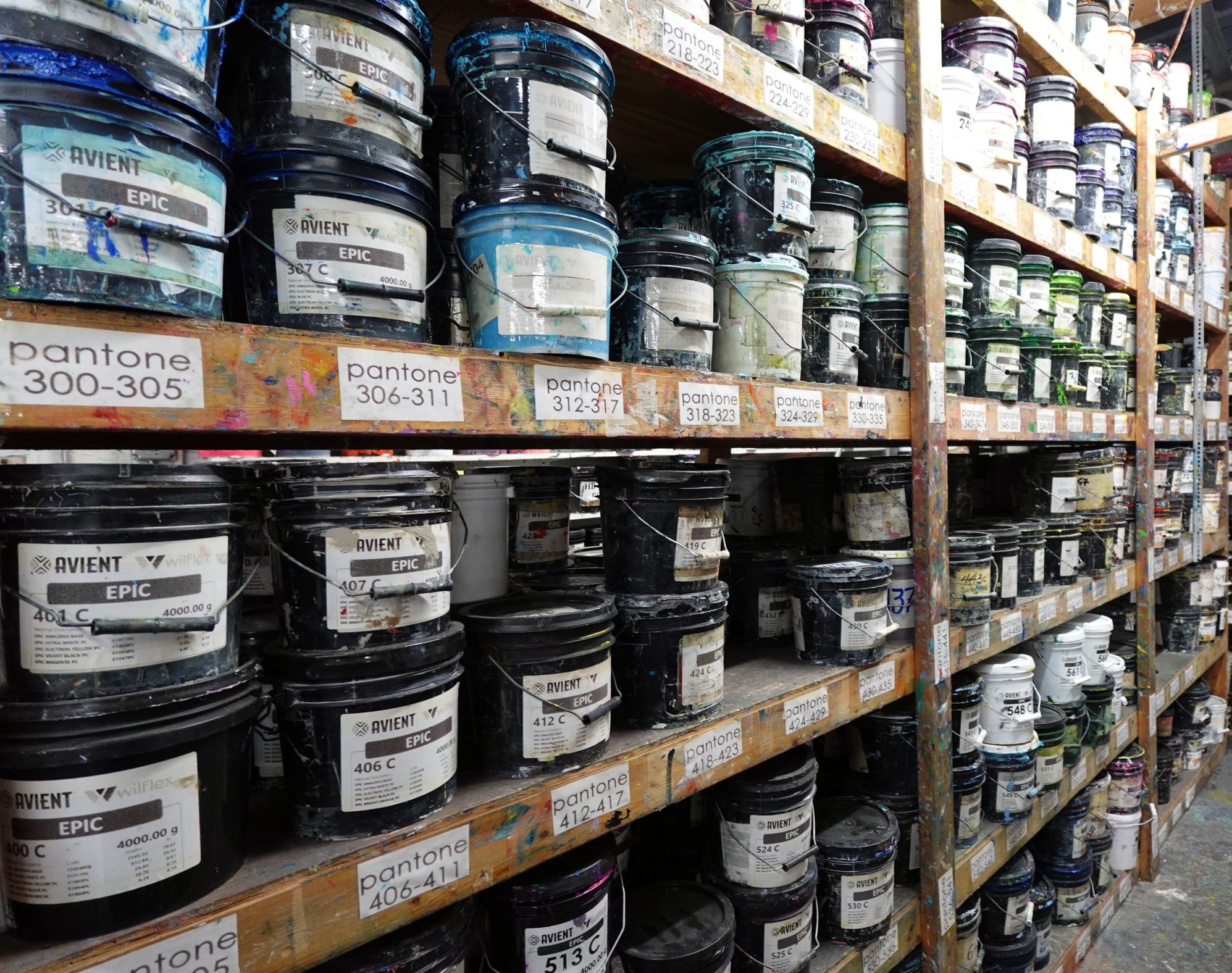Soft Hand Printing
Soft Hand Printing
Retail-inspired designs demand increasingly softer prints. Thanks to advances in ink technology, achieving a soft feel on white or light garments is easy with fashion soft base additives and water-based inks. Distressed or vintage-style prints look more authentic when created with soft inks and high mesh counts.
Creating soft prints on dark garments is more complex. If you’re aiming for a soft-hand print on dark fabrics, be sure to discuss expectations with your decorator to understand the process and results. Below is an overview of the different inks we use and what makes each unique.
Fashion Soft or Chino
Softness & Detail
Just as soft as water-based inks. You can’t feel any ink after one washing! These base additives are the plastisol answer to soft hand printing.
Inks mixed with soft-hand additives are able to hold the same amount of detail as their standard pantone counterparts.
Printability & Opacity
Since the ink is still plastisol, these are ideal for printing soft-hand in the majority of screen print shops.
Pantone colors mixed with a soft hand base are more transparent than regular plastisol formula colors. They tend to have a washed out look when printed over white underbases. For this reason they are not recommended for use on dark garments, but are really geared for white and light colors of shirts. Soft hand bases are not visible on dark garments.
Water Based
The chemical make up of this in lends itself to a less-like-plastic print.
The curing time is slower and the ink has a tendency to dry at the edges of the stencils. More manpower is needed on press to maintain consistency in print. Expect a higher rate of spoilage
This ink has a tendency to dry in small design areas, so there is a bit of loss in any detail area or fine halftone.
This ink is more transparent than regular plastisol and does not print well on white underbases, nor do they appear on dark garments. Stick to water-based ink on white or light colors.
There is no pantone matching with water-based ink.
Water-based inks have a tendency to print lighter than their PMS counterpart.
Discharge
Discharge ink is the water-based ink for dark garments. It is considerably softer than any plastisol print requiring an underbase. Discharge ink utilizes an activator that bleaches the dye out of the t-shirt and deposits the pigment of the ink.
The curing time is slower and the ink has a tendency to dry at the edges of the stencils. More manpower is needed on press to maintain consistency in print. Expect a higher rate of spoilage. Rich colors such as red, turquoise, purple, and royal discharge very unpredictably. The inks are often contaminated by the dye in the shirt. Black garments also discharge very unpredictably.
Since it is a water-base ink, avoid designing with detail and fine halftones.
Discharge colors can appear quite vibrant, although this ink has a look that differs from plastisol. Be sure to discuss the variables that affect the final print with your customer service rep.
The number of variables that affect the ink deters us from being able to guarantee pantone matching with discharge inks. Discharge colors tend to print 1-2 shades lighter than the called out pms color.
